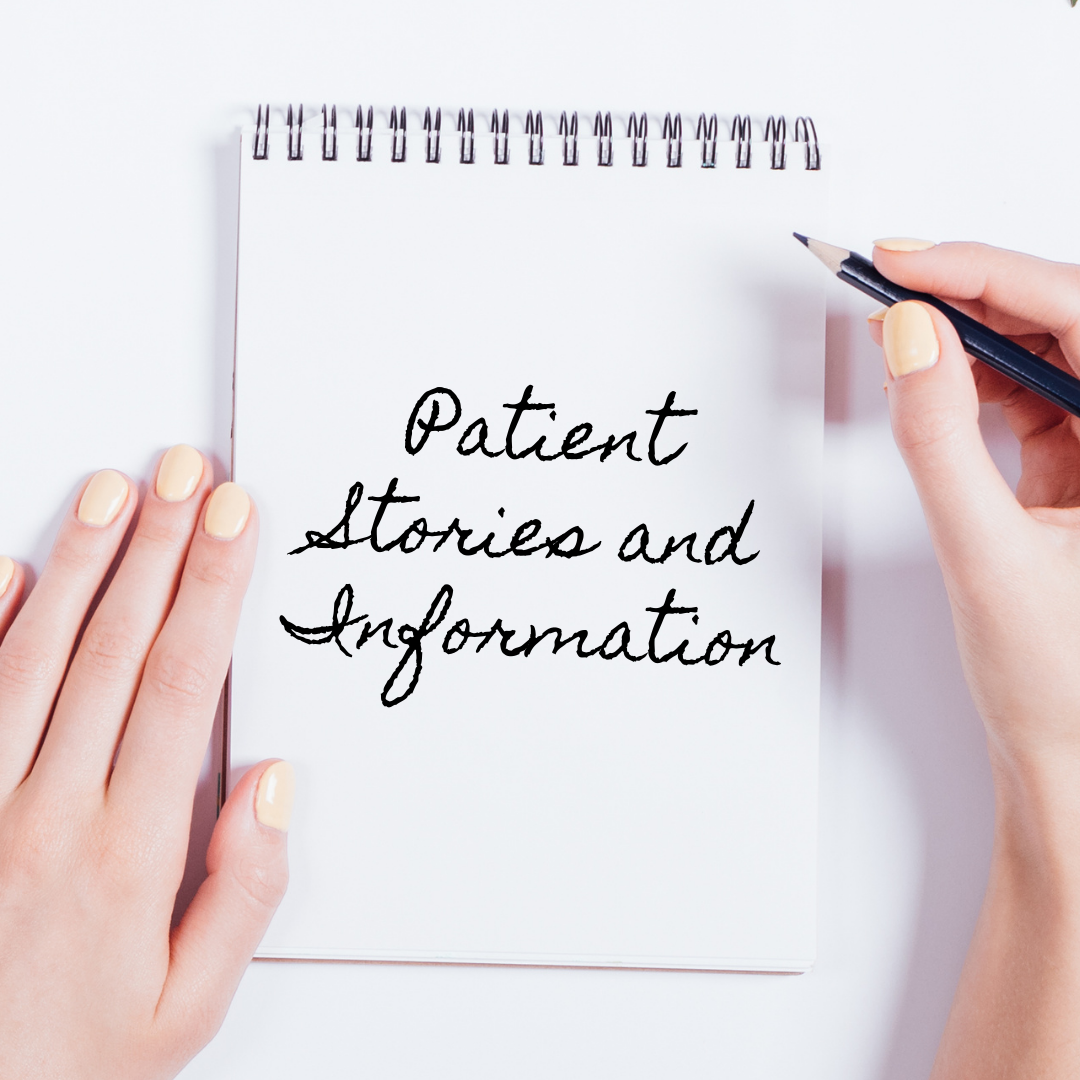Gastroparesis is a condition where the stomach empties more slowly than normal, often causing nausea, bloating, and pain after eating. While there's no cure, adjusting your diet is one of the most effective ways to manage symptoms—especially during flare-ups. In this guide, we’ll cover what to eat during a flare, how to build a long-term gastroparesis diet, and which foods to avoid.

About the Author: Grace is a 24-year-old chronic illness warrior living in Portland, Oregon. She runs an Instagram account @graceharestad dedicated to physical and mental health advocacy!
My Gastroparesis Diagnosis Journey: Managing a Complex Condition
I was diagnosed with gastroparesis in 2018 after showing symptoms of it for most of my life. Unfortunately, due to other conditions I have, my gastroparesis has gotten a lot worse since then and my symptoms have continued to progress. Gastroparesis is basically partial or total paralysis of the stomach, which leads to nausea, vomiting, vomiting undigested food from hours or days prior, severe bloating, stomach pain, and in rare cases, it can lead to death due to complications from malnutrition. Gastroparesis, like a lot of rare diseases, doesn’t have a cure. There are simply ways to manage the disease and hopefully improve or maintain quality of life. There are times I don’t show any symptoms of gastroparesis, and there are other times where I flare up and I can’t eat solid food for weeks at a time. This can be really dangerous, it's not fun or safe to be starving for weeks on end. I am writing today to give you some tips and tricks on how to get through flare ups of gastroparesis, and the foods I eat (more like drink) to get me through safely.
Typical Gastroparesis Diet Approach
Many healthcare providers recommend following a phased approach to eating with gastroparesis, starting with liquids and slowly reintroducing soft solids. For example, during a flare,UVA Health suggests sticking to clear broths, electrolyte drinks, and blended foods to avoid overworking your stomach.
-
🥣 Phase 1: Liquids Only (During Severe Flares)
-
Broths, electrolyte drinks, diluted juices, protein shakes
-
🥄 Phase 2: Soft & Low-Fiber Foods
-
Mashed potatoes, bananas, applesauce, canned peaches
-
🍚 Phase 3 : Reintroduction of Solids
-
White rice, scrambled eggs, lean poultry
|
Phase |
Foods to Eat |
Avoid |
|
1 |
Clear broth, electrolyte drinks |
Dairy, creamy soups |
|
2 |
Mashed veggies, white rice |
Raw fruits, whole grains |
|
3 |
Cooked lean meats |
High-fat meats, cruciferous veggies |
Gastroparesis Flare-Specific Advice: My Go-Diet Tips
When it comes to eating during a gastroparesis flare, it really varies on how I am feeling and what I am in the mood for. I don’t live my entire life in a GP flare (thankfully), but I always live with gastroparesis in mind. I like to keep in mind foods that can provide me with the most nutrition and calories when solid foods just won’t work. I also have Celiac disease which means I can have absolutely no gluten. Some other foods I’m intolerant to but can have on special occasions are soy, dairy, and corn. So obviously while some of my food choices may be different than the average person’s, they can still be helpful to those with GP or digestion issues! Here some things I always have on hand:
- Soft foods: Foods like mashed potatoes, gluten-free gravy, and applesauce in varying flavors like apricot, peach, and mango are easy to digest and won’t be too hard on the stomach.
- Soups and Broths: I almost always keep bone broth in my freezer not just because I like the taste, but also because bone broth is really dense in nutrients. I keep other broths in stock as well like chicken, beef, and veggie. I buy lots of soups, but I have to be extra cautious since soups are a great place for gluten to be hidden.
- Rice: I buy a lot of rice for the days my GP symptoms aren’t terrible and I need something that's going to fill me up more. Rice can be a good way to pack in calories, nutrients, and fibers!
- Smoothies: I always keep lots of frozen fruits and veggies around to make smoothies! Sometimes these are still too hard on my stomach but they are a great option. I order pre-packaged smoothies from Revive that I just grab out of the freezer and throw in the blender with some coconut milk!
- Sweet Treats: When I have a sweet tooth, I buy hard candies and just let them dissolve in my mouth. I also make and buy my own popsicles! They’re an easy way to get both hydration and calories. Dairy-free ice cream, frozen yogurt, pudding, jello are also great options. Foods that you would think to eat with a sore throat, I found have been the “safest” for me to consume during a flare!
Hydration is Key!
One of the hardest parts for me is staying hydrated, especially because I have multiple comorbidities, which is just a fancy way of saying “having multiple conditions at once.” One of those conditions is POTS, or Postural Orthostatic Tachycardia syndrome, and one of the most important things to do for both GP and POTS is to hydrate!! At all times in my house, I make sure I have Gatorade, Drip Drop which is an electrolyte powder that mixes into a glass of water, vitamin water, various juices, and of course water. It can get pretty boring trying to stay hydrated with just water, and it's also not always possible, so my gastroparesis is another reason that I receive IV fluids for hydration anywhere from 4-7 times a week. Sometimes having too much liquid in my stomach just adds to my GP symptoms or it's just not possible to drink enough water to sustain my body, so IV hydration has been helpful.
Gastroparesis Diet Tips: Find What Works For You
When it comes to eating during a flare, I like to come prepared and make a list before going grocery shopping, but I always see things when I am actually there that I didn’t think of. When making food choices, I think of things that are dense in nutrients and calories, but also “pre-digested” so my stomach has to do as little work as possible. It's been quite a bit of trial and error, and I am still learning new ideas for foods and pureed recipes. Overall I have a pretty good grasp on what works for my body for a flare and what doesn’t. It is totally different for everyone, and some of the things I may be able to eat you might not be able to tolerate! This is not medical advice as I have no formal education in nutrition or medicine, These are just some ideas of things that help get me through tough times. I hope you’ve found this helpful, and remember that just because you have a medical diet or limitations, that doesn’t mean you can’t eat delicious foods!
Managing gastroparesis isn’t just about what you eat—it’s also abouthow you eat. A few simple habits can go a long way in helping your body process food more comfortably and avoid triggering symptoms.
Here are some practical tips to keep in mind:
-
Eat small meals, more often
Instead of three large meals, aim for 4 to 6 smaller ones spaced throughout the day. Smaller portions are easier for your stomach to handle. -
Chew your food thoroughly
Take your time and chew each bite well. This helps reduce the workload on your digestive system. -
Sit upright during and after meals
Try to stay upright for at least 1–2 hours after eating to help food move through your stomach more easily. -
Avoid drinking fluids during meals
Sip water or clear liquidsbetween meals rather than during. Drinking while eating can make you feel too full, too fast. -
Limit high-fat and high-fiber foods
Fat and fiber can slow down digestion, so try to choose low-fat options and cooked, peeled, or canned fruits and vegetables. -
Track your symptoms
Everyone is different—keeping a food and symptom journal can help you identify your personal triggers and better manage flare-ups.
Remember: you're not alone. Small changes can make a big difference in how you feel day to day.
For a more comprehensive list of foods you should eat and avoid with gastroparesis, click here.
Nutritional Risks to Watch Out For
People with gastroparesis often reduce fiber intake to avoid discomfort, but over time, that can lead to constipation. Gastroparesis can also make it harder for your body to absorb key nutrients like vitamin B12, iron, and calcium. TheNIDDK highlights that malnutrition is a serious risk if symptoms are not well managed over time.
Here are a few things to watch out for:
-
Vitamin and mineral deficiencies
If you’ve been eating mostly soft or liquid foods, you may not be getting enough essential nutrients likeVitamin B12,iron,calcium, andvitamin D. These are important for energy, bone health, and overall well-being. -
Low fiber intake
Many people with gastroparesis need to avoid high-fiber foods to reduce bloating and discomfort. But long-term low fiber can lead to constipation. A registered dietitian can help you find a safe balance. -
Unintended weight loss or malnutrition
If you’re eating less or avoiding food because of symptoms, your body might not be getting the calories and protein it needs to stay strong. Signs to look out for include fatigue, hair thinning, or muscle loss.
If you’re concerned about your nutrition, we always recommend speaking with a healthcare provider or dietitian. They can help you create a personalized plan that supports both your symptoms and your overall health.
Frequently Asked Questions
What is the best diet for gastroparesis?
There’s no one-size-fits-all diet, but most people with gastroparesis do best with meals that arelow in fat,low in fiber, andeasy to digest. Many follow a phased approach, starting with liquids during flares and gradually moving to soft or well-cooked solid foods. Eating small, frequent meals and chewing food well can also help manage symptoms.
What can I eat during a gastroparesis flare?
During a flare-up, it’s best to stick withclear liquids andvery soft foods to avoid overwhelming your digestive system. Think broths, electrolyte drinks, applesauce, mashed potatoes, or protein shakes. Once symptoms ease, you can slowly reintroduce other low-fiber, low-fat foods.
What foods worsen gastroparesis?
Foods that arehigh in fat,high in fiber, orhard to break down often make symptoms worse. This includes fried foods, raw vegetables, tough meats, beans, whole grains, and carbonated drinks. Everyone is different, so keeping track of your personal triggers is key.
Can I eat rice with gastroparesis?
Yes—plain white rice is generally well-tolerated because it’s low in fiber and easy to digest. Avoid brown rice and wild rice during flares, as they can be harder for your stomach to process.
Is fiber good or bad for gastroparesis?
Fiber can be tricky. While it’s usually a healthy part of any diet, it can slow down digestion and cause bloating or discomfort in people with gastroparesis. If you're avoiding fiber, it’s important to work with a healthcare provider to prevent constipation and get the nutrients your body needs.
What are some other foods you can eat during a flare? Let us know in the comments or email us at wecare@careandwear.com. We love hearing from our community members!










Ruth Idell
July 31, 2025
I just found this string of helpful suggestions. I have had go since march 2018. My diet before go was lots of salad, fibrous vegetables like cabbage, etc. exactly opposite from go diet. I have had trouble adjusting. I take tons of supplements. Looking forward to learning more ways to handle food and supplements. I get terrible heartburn and tons of nausea. I use Dramamine and Ondanestan for nausea.
Small meals are hard. I find ironically that candy, etc do better than food. Not good.
Thank you all for sharing. Can’t afford a dietician or natural doctor. Ruth I am 72 years old